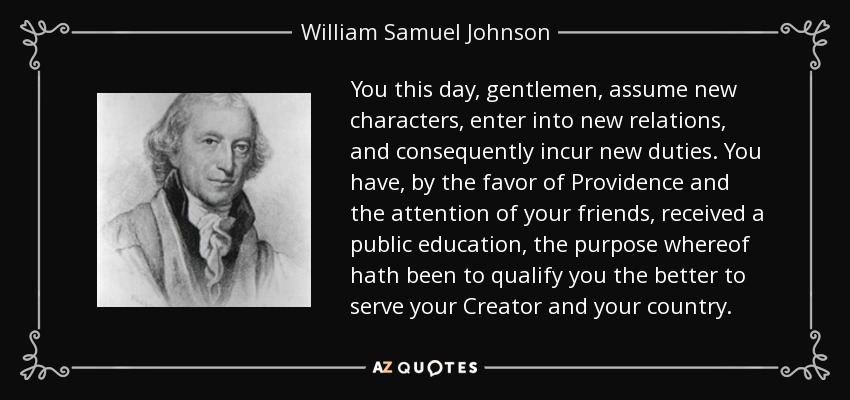Public Education Quotes - Page 6
-
-
 You this day, gentlemen, assume new characters, enter into new relations, and consequently incur new duties. You have, by the favor of Providence and the attention of your friends, received a public education, the purpose whereof hath been to qualify you the better to serve your Creator and your country.
You this day, gentlemen, assume new characters, enter into new relations, and consequently incur new duties. You have, by the favor of Providence and the attention of your friends, received a public education, the purpose whereof hath been to qualify you the better to serve your Creator and your country.
-
You May Also Like Quotes On:









